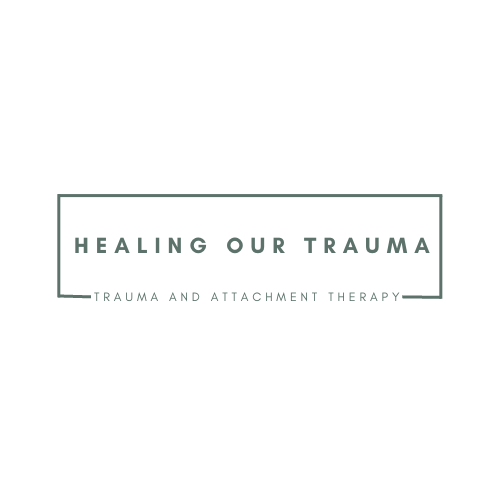What is Narrative Therapy?
At Healing Trauma KC, we offer a range of general counseling services, including Narrative Therapy, to help individuals and couples navigate through life's challenges. Narrative Therapy is a collaborative approach that focuses on the stories we tell ourselves and how they shape our experiences. By exploring and reshaping these narratives, individuals can gain insight, heal from trauma, and develop new perspectives. Our compassionate therapists are here to guide you on your journey to healing and growth.
What is Narrative Therapy Theory?
Externalization
In Narrative Therapy, externalization involves separating the problem from the person. Instead of viewing the issue as an inherent part of the individual, externalization allows individuals to see problems as separate entities. This shift in perspective can empower individuals to explore their relationship with the problem and work towards overcoming it.
Reauthoring and Retelling
Narrative Therapy emphasizes the idea that individuals have the agency to reauthor and retell their life stories. Therapists encourage clients to reconsider and reconstruct the narratives that shape their self-perception and understanding of their experiences. This process allows for the exploration of alternative, more empowering stories.
Deconstruction of Dominant Narratives
Narrative Therapy challenges the influence of dominant cultural or societal narratives on an individual's identity. Therapists work collaboratively with clients to deconstruct oppressive or limiting narratives that may contribute to their struggles. This process involves questioning and reframing societal expectations or norms that may not align with the client's values and experiences.
Unique Outcomes and Exceptions
This component focuses on identifying and amplifying unique outcomes or exceptions to the problem-saturated narratives. Therapists help clients recognize moments when they have deviated from the dominant problem narrative or experienced positive change. By highlighting these exceptions, individuals can gain insight into their strengths and possibilities for change.
What Can Narrative Therapy Help With?
Narrative Therapy is a therapeutic approach that may address various aspects of emotional well-being. It's important to note that Narrative Therapy is not limited exclusively to the below scenarios, and its applications may extend to other concerns related to attachment patterns and interpersonal dynamics.
Externalizing Trauma
Trauma often becomes internalized, affecting one's sense of identity and self-worth. Narrative therapy externalizes the problem, allowing individuals to view trauma as separate from their core identity. By externalizing the trauma, individuals can distance themselves from the impact and explore how they have resisted and coped with it. This process can lead to a sense of empowerment and a shift in the relationship with the traumatic experience.
Identity Reconstruction
Trauma can significantly impact one's sense of self and identity. Narrative therapy provides a space for individuals to explore and reconstruct their identity beyond the label of a trauma survivor. By emphasizing the multiplicity of identities and the potential for change and growth, narrative therapy supports individuals in shaping a narrative that aligns with their values, strengths, and aspirations.
Post-traumatic Growth
Narrative therapy is well-suited for facilitating post-traumatic growth by focusing on the stories of strength, resilience, and positive change that can emerge from traumatic experiences. It encourages individuals to explore how they have adapted and grown in the aftermath of trauma, fostering a sense of hope and possibility for the future.
Narrative Therapy FAQs
Have questions? We’re here to help.
-
Who is Narrative Therapy best suited for?
Narrative therapy is a versatile approach that can benefit individuals of all ages who have experienced trauma. It is particularly suited for those who are looking to delve into the deeper meaning of their experiences and explore alternative narratives that empower them. Whether you have faced a single traumatic event or have endured ongoing trauma, narrative therapy can help you gain insight, find resilience, and reclaim your sense of self. This therapeutic modality offers a safe and collaborative space to rewrite your story and shape a more hopeful future.
-
Is Narrative Therapy a good fit for your trauma recovery journey?
For trauma survivors on their recovery journey, narrative therapy can be a powerful approach to healing. Narrative therapy offers a unique perspective, emphasizing individuals' agency, resilience, and the reconfiguration of trauma narratives. If you are a trauma survivor seeking healing, consider narrative therapy as a complementary modality to your existing support system. Explore narrative therapy's modalities, principles, and applications, and consult with licensed mental health providers about its compatibility with your needs and goals. By engaging in narrative therapy, you may discover newfound strength, compassion, and empowerment, ultimately transforming your trauma recovery journey.
-
When not to use Narrative Therapy?
For individuals who are not ready or willing to explore their experiences in-depth, narrative therapy might not be the best fit. This approach requires active participation and a willingness to reflect on and examine one's own story. If someone is currently in crisis or experiencing acute distress, other therapeutic interventions that focus on stabilization and immediate support may be more appropriate.
At Healing Our Trauma we know that you want to be on a path to recovery and restoration. In order to do that, you need to address your underlying, unmet needs. The problem is most people don't know where to turn to or how to start which makes you feel frustrated and stuck. This leads some to want to quit. We believe in your resilience and the possibility of reclaiming a life marked by strength, growth, and renewed hope. We understand that overcoming trauma is a journey that requires personalized care, empathy, and a safe space for healing.
So, schedule a free evaluation. And in the meantime, sign-up for our Support Newsletter.
Together, we can navigate this journey toward healing, ensuring that you not only survive but thrive in the aftermath of trauma.
Contact Us
816-200-7909
Contact Us
We will get back to you as soon as possible
Please try again later
Insurance Accepted: Aetna (Missouri Only)
Forms of Payment: Cash, Check, Visa, Mastercard, Discover, American Express
Our address
Email: nadirah@healingtraumakc.com
Tel: 816-200-7909
12401 E 43rd St S, Independence, MO 64055, United States of America
Work Hours
- Mon - Fri
- -
- Sat - Sun
- Closed

